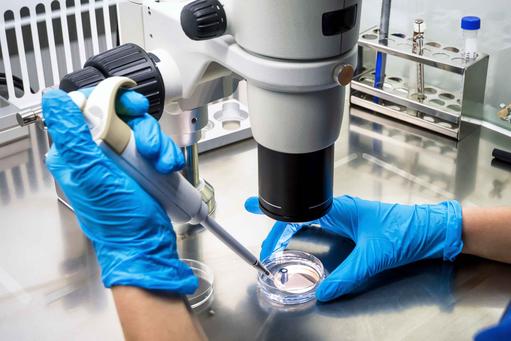- Leading cancer scientist says we should abandon looking for a cancer cure
- Another leading cancer scientist discovers key to killing all cancers
- Cancer is an inevitable consequence of our multicellular make-up
- Each person's cancer is unique
- One in three people will develop cancer in their lifetime
- Every day 1,500 Americans, and more non-Americans, die of cancer
Most cancers cannot be cured and scientists should devote their efforts to preventing and managing the disease instead of trying to find a cure. That’s the view of Melvyn Greaves Professor of Cell Biology at the Institute of Cancer Research, UK.
Game changing cure for all cancers
Greaves’ suggestion comes at a time when Professor Philip Ashton-Rickardt, from Imperial College London discovered a previously unknown protean, which boosts the body’s ability to fight off any cancer or virus. “This is a completely unknown protein. Nobody had ever seen it before or was even aware that it existed. It looks and acts like no other protein . . . . It could be a game-changer for treating a number of different cancers and viruses,” says Ashton-Rickardt.
Unanswered questions about cancer
Cancer is an uncontrolled cell proliferation, propelled by mutant genes that invade our tissues and hijack essential body functions. Some regard this process as a ‘disease of the genome’. Around one in three of us will, at some time in our lives, be diagnosed with cancer; every day 1,500 Americans and vastly more non-Americans die of the disease. Missing from the narrative about cancer has been a coherent framework that makes sense of all its complexities and uncertainties: why are we so vulnerable to cancer, why is there so much diversity between different cancers, and even within single cancer types? And why does treatment so often fail or only temporarily succeed?
Mike Birrer, Professor of Medicine, Harvard University Medical School and Director of Medical Oncology, Massachusetts General Hospital describes the Cancer Genome Atlas, a landmark cancer research program, which begins to address some of these questions:

Previously undiscovered protein
The protein discovered by Ashton-Rickardt, named lymphocyte expansion molecule, or LEM, promotes the spread of cancer killing T cells by generating large amounts of energy. Normally when the immune system detects cancer it goes into overdrive trying to fight the disease, flooding the body with T cells. But it quickly runs out of steam.
The new protein discovered by Ashton-Rickardt causes a massive energy boost, which generates T cells in such great numbers that the cancer cannot fight them off. It also causes a boost of immune memory cells, which are able to recognise tumors and viruses they have encountered previously so there is less chance that they will return. Ashton-Rickardt, whose studies to-date have been in mice, is hoping to produce a gene therapy whereby T cells of cancer patients could be enhanced with the protein, and then injected back into the body. In three years he expects to begin human studies. If successful, Ashton-Rickardt’s discovery could end the need for chemotherapies, as the body itself would fight the disease, rather than toxic drugs.
Alex Walther, consultant medical oncologist and Director of Research in Oncology at University Hospitals, Bristol describes the challenges of clinical trails in personalised molecular medicine:

Need for smarter cancer strategies
Although sceptical about a cancer cure, Greaves has spent years unravelling the causes of childhood leukaemia by examining the genetic influences and biological pathways that lead to the disease. In 2008, breakthrough research led by Greaves and Professor Tariq Enver, achieved a world-first by confirming the existence of stem cells responsible for childhood acute lymphoblastic leukaemia.
Greaves insists that, “We need to get smarter. Very intelligent people who aren't scientifically minded think there must be a cause, there must be a cure, and it’s just not right. It’s fundamentally wrong . . . Talking about a cure for cancer in terms of elimination is just not realistic. . . . There are a few cancers that are curable, but most are probably not, including the common carcinomas in adults . . . . We should therefore not try to eliminate the cancer, we should try to hold it in check,” says Greaves.
Experts disagree
Leading cancer expert Professor Karol Sikora, is confident cancer cures could still be found, and finds Greaves’ pessimism, “Strange, given that Professor Greaves has done so much to help find a cure for leukaemia. I absolutely think we will find new cures in the future, and the closer we get to understanding the mechanism of the disease, the quicker this will happen.”
Professor Peter Johnson, chief clinician at Cancer Research UK agrees with Sikora, “We already have cures for many types of cancer. For example, millions of people who have had breast cancer, prostate cancer or bowel cancer are alive years after their surgery to remove the tumour, if it was caught early enough.”
Molecular Darwinism
Cancer researchers throughout the world are attempting to find cures for individual cancers using increasingly advanced methods. These include ramping up the body's own immune system to fight the disease; personalized treatments based on the DNA of the tumors, and gene therapies. But Greaves believes no therapy will work in the long term because tumors continue to evolve like all life forms. "Isn't it odd that when you read reports about new cancer therapies they work dramatically, but three months later, cancer is back with a bang. It's almost always the story" says Greaves.
In his book, Cancer: The Evolutionary Legacy, Greaves describes the Darwinian process by which cancer cells mutate, and diversify by natural selection within our tissue ecosystems. According to Greaves cancer is an inevitable consequence of our make-up as a multicellular reproductive animal. Since multicellular organisms have been around for 700 million years there has been a long time for cancer to evolve; and, without DNA mutation, we ourselves would not have evolved, and adapted into what we are. According to Greaves, "Cancer becomes a statistical inevitability of nature; a matter of chance and necessity."
Takeaways
Evolutionary principles derived from ecology, and the study of human evolution can change the way we think about the big question in cancer research. Will this provide new avenues for more effective cancer control or a cure?
|



